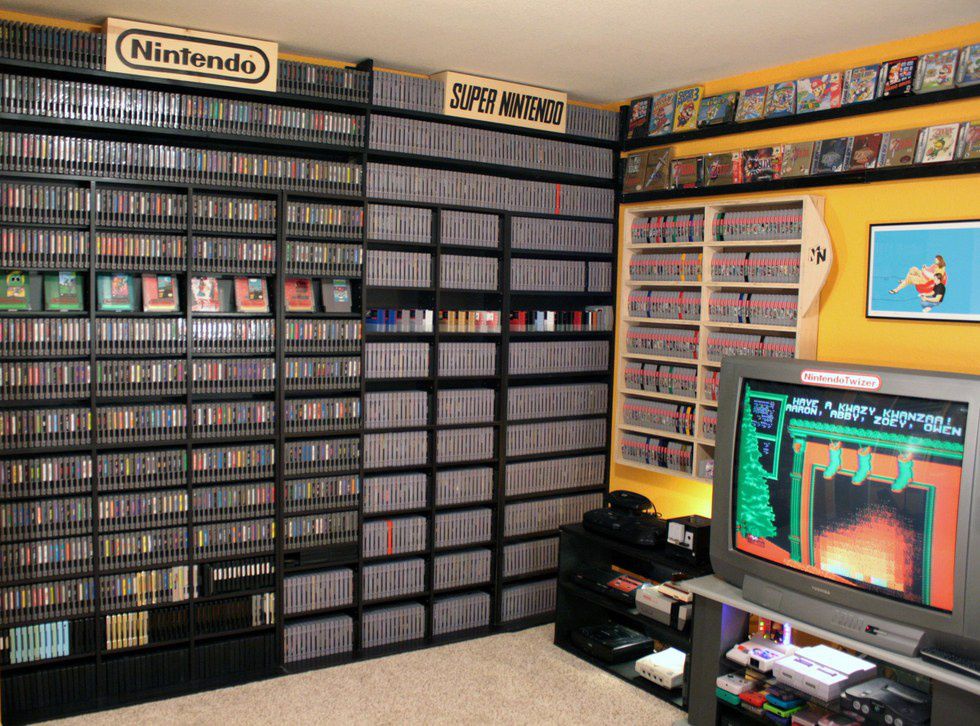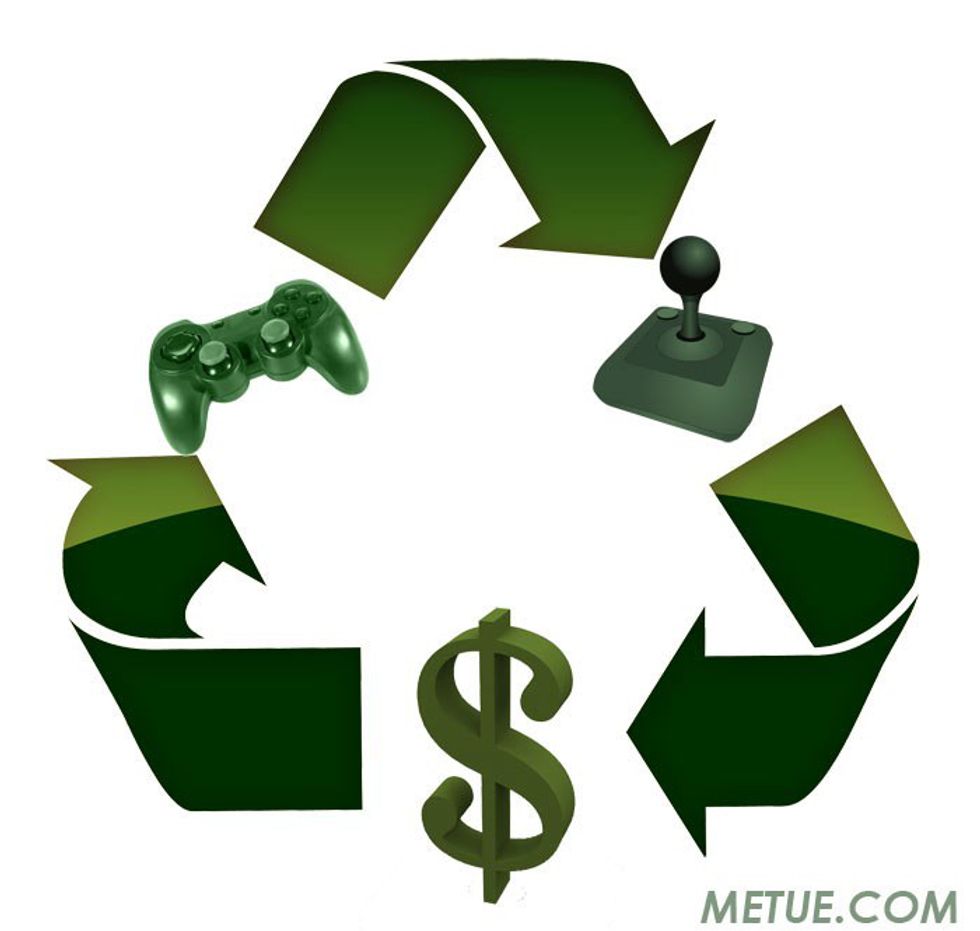The current generation of consoles offer digital marketplaces, where gamers can download almost any game that they want. But I've always favored having a physical copy of my games. After a recent argument with one of my friends, I've decided to weigh the two sides and see if I can convince myself that I'm wrong.
Building a collection — This is my primary argument for purchasing physical copies of my games. Having a shelf full of suggestions of games to play (or replay) across all my consoles makes quick work of deciding what to play on any given day. It also serves as a trophy case of sorts. I don't have many trophies or medals in the traditional sense, but each of these retired games is a palpable symbol of achievement. The hours of work that I put into each game, the countless bosses I've slain, the worlds that I once visited are all there for me to reminisce on. Count one point for discs.
Sharing with friends — Yeah right. Ask if you can borrow one of my games. No way. I once lent out my game-of-the-year edition of "Borderlands." I never got it back. You have to be in my inner-most circle of friends to get your mitts on my games. But if you happen to be nice enough to lend your games to friends and have taken advantage of their generosity in return, then this is a clear advantage over digital copies. Because of the possibility of theft and the opportunity to play games you didn't pay for, this category is a wash.
Installation file sizes — "Fallout 4" is huge. If you purchase the disc for Xbox One, the installation size is the same as if you downloaded a digital copy of it: 28gb. As it is with all games. Another wash.
Ease of access — This may make me sound terribly lazy, but with discs I have to get up off the couch to switch between games. There have been occasions, I'm ashamed to admit, that I have settled for playing a game that was in my digital library because I didn't want to get off my butt. Add one point for digital copies.
The carbon footprint — This might just be the tree-hugger in me, but I do feel bad knowing that every disc pressed consumes a nominal amount of raw materials that we don't necessarily need to use, not to mention the fossil fuels that are burned to run the machines that press the discs. With games like "Call of Duty: Black Ops III" selling 10.7 million copies in 2015, a whole lot of landfill space lies in wait for when the next entry in the series is released and unsentimental gamers toss BlOps III. Add another point for digital copies.
Reselling — If you happen to sell a game as soon as you beat it, or trade it in to stores like GameStop, you no doubt are already aware of the advantage of having a disc that can be used to get a disc-count (clever, no?) on your next adventure. Digital games can not be sold off. That's another point for discs.
Longevity — Discs can get scratched, and hard drives can become corrupt. Both, however, are rare occurrences. If owners are careful with their discs, there is no reason a game couldn't last for a long time. The only advantage I can give to digital copies is the one copy that should be submitted to the The Strong National Museum of Play. No points.
If you've been keeping track, it's a dead tie. I hate to be a fence-sitter, but it makes sense. It's why retailers still sell physical copies of games. Some people, like myself, are just happy with the way we've always bought games. Why change what we've always loved: holding on to every game we've ever enjoyed? Because someday, I do want to play "Super Mario Bros. 3" on an NES, not an emulator.























